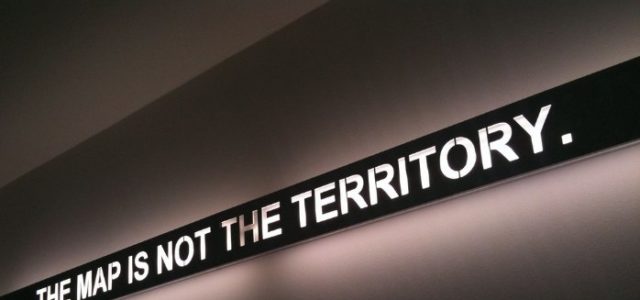I began wondering if I was a data scientist around 2010, when the Big Data boom started to take off. Now almost everyone is a data scientist, it seems. In a blog I once kidded that, according to the latest World Bank figures, there are now 6.9 billion data scientists on the planet. One reader, apparently seriously, asked me for a link to my source. If my neighbour’s cat suddenly declared he was a data scientist, I almost wouldn’t be surprised.
Je programme, donc je suis?
So, I guess I am, though I’m not 100% certain because no one really knows what a data scientist is. The term seems to include coders, programmers, software developers, IT people, AI researchers, statisticians, as well as what most of us would just call scientists. Institutional Research (IR), which blends elements of IT, statistics, operations research and marketing research, was my focus in grad school years ago and I think should also be considered data science.
Data science used to be known as predictive analytics and, before that, data mining. Both are closely associated with data warehousing and CRM, which date back to the ‘90s. When I began my career in marketing research, CRM was known as database marketing and was one form of Enterprise Resource Planning (ERP), which as a long history.
Universities have been collecting data on students, faculty and facility usage for ages. Actuarial science is an early example of data science and has roots at least as far back as the 17th century. Finance lives off data and is even older, and astronomy older yet. Governments have conducted census surveys and gathered and analyzed data for more than two millennia. In their own ways, animals also use data to make decisions (e.g., more danger here, more food there).
This is not to say nothing has changed. Data has gotten bigger and more varied and we now have powerful computers and a vast array of sophisticated analytic techniques. But, again, using data to enhance decision making is not new.
Hundreds of data science and analytics programs have popped up all over the world in the past few years and their curricula show little consistency. They usually are computer science focused, though some also attempt to cram the equivalent of a Master’s in Applied Statistics into a few courses. My sense is that some colleges and universities, not wanting to be late to the party, have quickly thrown programs together based on their existing resources, including adjunct professors. There are also online certification programs, again with scattered content. Few data science or analytics programs cover any subject in much depth, as far as I can tell.
So, are you a data scientist? If you are reading this, mostly likely you are a marketing researcher, though marketing research itself is quite eclectic and goes by more than one name. I suppose it depends on your role. Over the course of my career, I’ve done pretty much the A-Z of MR but mostly have focused on the quantitative side.
Quantitative marketing research is often associated with survey research, but this is misleading. I began my career in financial services and my employer had extensive customer records which my team and I analyzed, in addition to conducting surveys. After I moved to the agency side, but before anyone was talking about data science, I would occasionally receive requests from clients for analyses of their internal data, and still do.
Despite jumbled and inchoate definitions of data science, most data scientists seem to be computer scientists by another name. A large chunk of them are coders and programmers, or IT people under sundry titles. Not a small part of what is called data science is really data processing with some predictive analytics – often regression or canned “machine learners” – tossed in.
Relatively few data scientists appear to have a strong background in statistics and most know little about primary research. Data scientists usually show little interest in what statisticians call the data generating process (in a nutshell, what marketing researchers call the Why). Perhaps I’m sounding a bit harsh, but many others have made similar observations.
But I am oversimplifying. Some of my contacts calling themselves as data scientists are statisticians. There are also PhD mathematicians and computer scientists working in artificial intelligence…and scientists by any definition.
Are you a data scientist? If you work a lot with data, including consumer surveys and text mining, you probably are. If you are managing or processing data, I would say you definitely are. If your job is primarily selling and client management, I would say no. If you consider yourself a qualitative specialist, you might not want to be called a data scientist. As a marketing scientist and statistician, I think I qualify.
Looking a decade or so ahead, I suspect both marketing research and “data science” will be quite different from now. Some positions will have been lost to automation, and many low-end coding, programing and data management jobs will have disappeared. Routine types of analytics will be automated. Conversely, some marketing researchers and data scientists will have jobs that do not yet exist.
Perhaps a better question, then, is “What will you be?”
Article by channel:
Everything you need to know about Digital Transformation
The best articles, news and events direct to your inbox







